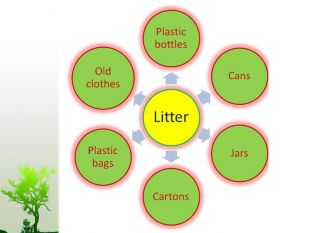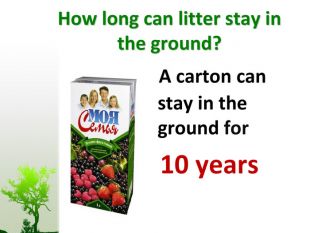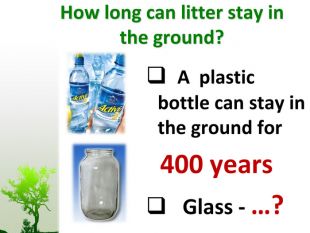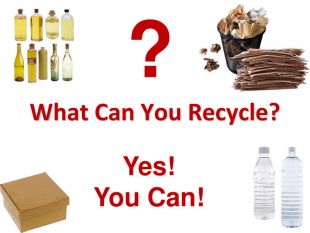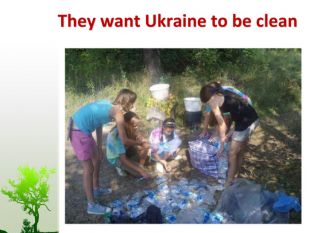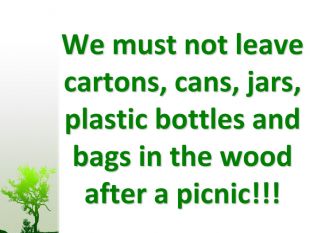Урок "Shopping For Food"
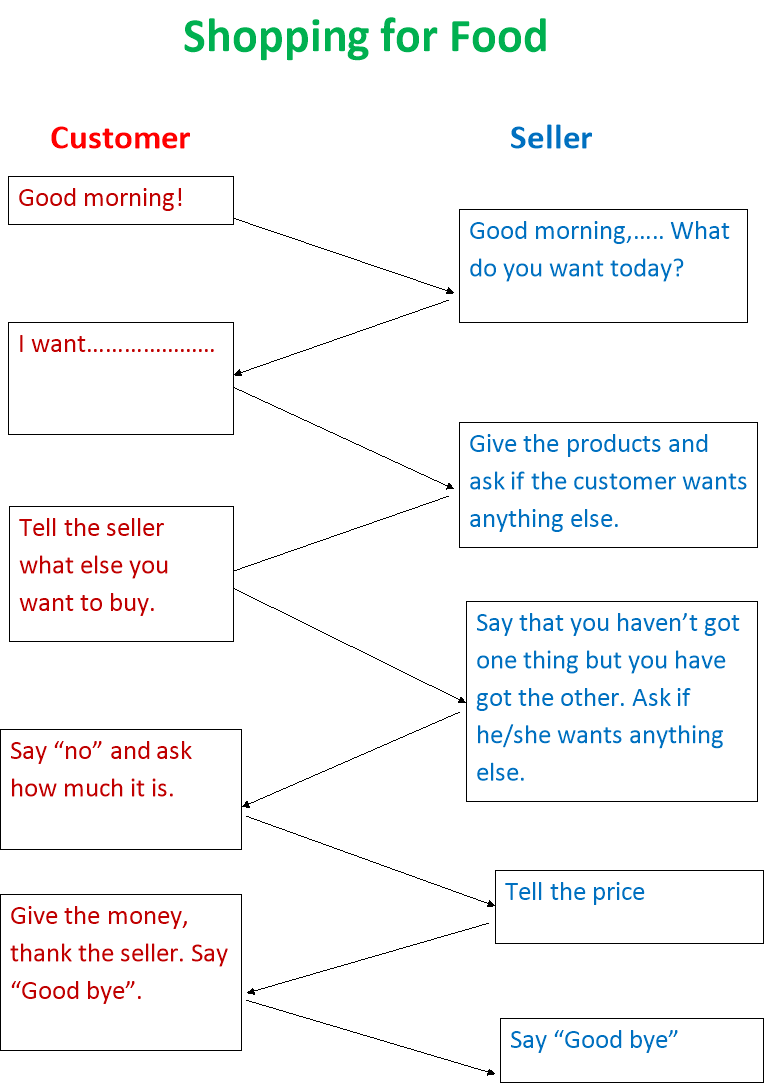
Сумская общеобразовательная школа I-III ступеней № 18 г. Сумы
Сумской области
План - конспект урока английского языка по теме
“Shopping For Food”
(4 класс)

Разработала учитель английского языка, специалист высшей категории, старший учитель
Приходько О.В.
Тема урока: Shopping for Food
Задачи урока: Научить учащихся общаться в магазине. Тренировать в употреблении ЛЕ «названия продуктов питания». Воспитывать культуру общения, бережное отношение к окружающей среде.
Оборудование: компьютер, мультимедийная доска, муляжи продуктов питания, 3 корзинки, карта Европы, микрофон, раздаточный материал, «волшебный мешочек» .
Ход урока.
І. Введение в иноязычную среду.
- Greeting.
T: Good morning, guys. Nice to see you. Take your seats and tell me: “How are you today?”
- Warming-up.
I want you, guys, to be smart, active and energetic during the lesson, so let’s start with a “Banana-chant” ( “Chant” сопровождается движениями ).
Class: Peel bananas, peel, peel bananas!
Eat bananas, eat, eat bananas!
Chop bananas, chop, chop bananas!
Mash bananas, mash, mash bananas!
Shake bananas, shake, shake bananas!
Jump, bananas, jump, jump, bananas!
Go, bananas, go, go, bananas!
Are you OK now? Today we go on talking about household chores and especially about shopping for food. You are going to read a text, play a shopping game, see a movie and finish our project.
ІІ. Основная часть урока.
- Vocabulary revision.
T: Look, guys, I’ve got my Magic Sack today. Ask me questions and try to guess what there is in the Magic Sack.
Ps: Is there a jar of jam in the Magic Sack?
Is there a can of olives in the Magic Sack? Etc.
Oh, you are so smart. Right you are! There is a… in the Magic Sack.
- Interview.
And now let’s talk about household chores. I want you to take turns to be “a correspondent” and interview your classmates.
(Учень з мікрофоном по черзі підходить до однокласників і розпитує їх. Потім передає мікрофон іншому учню).
P: Who does the cooking in your family?
Who does the ironing in your family? Etc.
- Reading.
Now let’s read the text on your handouts. First, look it through.
|
Sam always helps his mum about the house. He does the washing up and sweeps the floor. On Sundays he tidies up his room. He sometimes helps his dad to fix things. Today Sam goes shopping. He takes a bag and a shopping list and goes to the supermarket. He is going to buy a bag of flour, a pack of eggs, some meat, a bottle of oil, a carton of tomato juice, a can of fish and some apples. But they haven’t got any meat, so he buys some sausages. He buys an ice-cream too. When mother comes back from work she is very happy. “Oh, my little helping hand, thank you!” she says.
|
T: Are you ready? Now read the text in turn.
T: Answer the questions:
- How does Sam help his parents?
- What does he do today?
- What is he going to buy?
- Does he buy any meat? Why?
- Why is Sam’s mother happy?
- Speaking.
Do you, guys, help your parents? How do you help them? (Pupils tell how they help their parents).
P: I always help my parents about the house. I usually clean my room and water the plants. I sometimes help my Dad to fix things. I often go shopping.
- Watching a movie.
- T: Do you like to go shopping? What do you usually buy?
P1: I go shopping every day. I usually buy bread and milk.
P2: I go shopping on Sunday. I buy mineral water, lemonade and candy.
T: OK, now let’s watch a movie. It is from “The Simpsons”. Be very attentive, because after you see the movie, you’ll have to answer these questions (the questions are on the whiteboard).
- After watching the episode from “The Simpsons” the students answer the following questions:
- What is Mr. Burns doing?
- What is he going to buy first?
- What is he going to buy next?
- Does he buy any food? Why?
P: (Because they take him to the police).
- Singing.
T: Well done, guys. Now let’s have a little rest and sing a “Shopping Song”.
- Playing a “Shopping Game”.
T: Now let’s play a “Shopping Game”. We have three teams. Each team gets a “shopping list” and a basket. Now look through your “shopping lists” and “go shopping”. (The pupils in turn run to the table on which there are packages of different food, take the necessary item, come back, put it into the basket and pass the “shopping list” to another player. After the teams have finished their “shopping” the teacher checks if they have done their shopping correctly and names the winner.
- Role-play “Shopping for Food”.
- Making a “shopping list’.
T: Now I want you, guys, to make your own “shopping lists”.
The pupils get small sheets of paper of different colours with different tasks. E.g. Go shopping for Christmas (Easter, a picnic, a birthday party, etc.) and write their “shopping lists”.
- Role-playing the dialogue. Now take your “shopping lists” and go shopping to our “supermarket” (a table with different “food”). But first look through these cues to remember how to talk in the shop.( The cues are on the screen.)
The pupils role-play the dialogue:
Customer: Hello.
Seller: Hello, Kate. What do you want today?
Customer: I want a jar of tomatoes, please. (any item from the
“shopping list”)
Seller: Here you are. Anything else?
Customer: I also want a bottle of oil and some cheese, please.
Seller: Sorry, we haven’t got any cheese, but we have got oil. Here
you are, a bottle of oil. Anything else?
Customer: I want a pack of butter and a carton of milk, please.
Seller: Here you are! Anything else?
Customer: No, thank you. How much is it?
Seller: 5 pounds.
Customer: Here you are, 5 pounds. Thank you. Good buy.
Seller: Good buy, Kate. Have a nice day.
- Doing a project. (There is a funny map of Europe on the whiteboard.)
T: Now, guys, let’s move to our project. When you go shopping, you sometimes buy food not because you need it, but because the package or the label is very beautiful. Is it true?
Your homework was to make labels for different kinds of food and present them to the class. So, what label have you got, Dima?
P1: I have got a label for a can of fish. It is from Spain. It is Spanish.
T: Oh, your label is very nice! Come up to the map, find Spain on it and pin your label. Etc.
Our map is very beautiful, isn’t it?
- Presentation “Ecology”. (Tommy Zoom enters the classroom. It can be one of the older pupils. He has a litter bin in his hands.)
Tommy Zoom: Well, guys, during the lesson we often used such words as “can”, “carton”, “bottle”, “bag”, etc. what are they?
P1: They are packages.
Tommy Zoom: Right you are. We buy food in packages. But do we need all those packages after we eat, for example, yoghurt or drink juice?
The answer is “no”. They become litter. Look at the diagram and guess what the word “litter” means. We have a lot of litter every day. (On the screen the pupils can see a picture of piles of litter near the garbage tanks which is very common for our city.)
Can you, guys, sometimes see such picture near your houses?
(In the next picture the pupils can see piles of litter in the wood.)
Can you see such picture in the wood when you come for a picnic? What do you think about it?
P2: I think it is ugly.
Tommy Zoom (talks to the class): I agree with you. And do you agree? (The pupils answer.)
But do you know that if you leave your litter in the wood after a picnic, it can stay there for many years? Look at the screen and say: “ How long can a carton stay in the ground? And a can? A plastic bottle? A jar?
(A carton-10 years. A can-100 years. A plastic bottle-500 years. Glass-? Nobody knows)
Is it good for animals and plants?
What must we do with the litter?
Look! This is a litter bin. You must always put your litter into a litter bin.
Now I want you to remember a new word (on the screen) – “recycle”. It means “перерабатывать”. We can recycle glass, plastic, paper and metal.
Песня “What Can You Recycle?”.
(On the screen there is a photo in which the girls from our school whom the pupils know collect plastic bottles and put them into big bags.)
What are the girls in the picture doing?
What are they going to do with the plastic bottles?
Why are they doing it? (The answer is on the screen: “They want Ukraine to be clean”. The pupils read it after Tommy Zoom in chorus.)
Do you want Ukraine to be clean?
Ps: Yes, we want Ukraine to be clean!!!
Tommy Zoom: What must you do to make Ukraine clean?
P3: We must always put litter into litter bins.
Tommy Zoom: Right you are! And now I’ll see if you are ready for recycling.
- Игра “Recycling”.
На столе стоят «контейнеры» для разных видов мусора: пластика, металла, бумаги. Дети получают карточки с надписями “a plastic bottle”, “a tin”, “a coca cola can”, “an old newspaper”, ‘a jar”, etc. Дети по очереди подходят к «контейнерам» и кладут карточки в определенный «контейнер».
ІІІ. Заключительная часть урока.
- Домашнєе задание.
- Выставление оценок.
- Рефлексия.
What did you learn during the lesson?
Do you, guys, like our today’s lesson?
Which activity do you like best?
Использованные ресурсы:
Песня “What Can You Recycle?”
http://www.dreamenglish.com/recyclesong
Песня (видео) “It’s Our World”
http://www.bbc.co.uk/cbeebies/ecobeebies/songs/itsourworld/
Песня “Shopping, Sing And Play Song”
http://www.bbc.co.uk/cbeebies/tikkabilla/songs/shoppingsingandplay/
Видеосюжет “The Simpsons”
(К сожалению, точная ссылка не сохранилась)
К учебнику английского языка
Карп’юк О. Д. Англійська мова: Підручник для 4 кл. загальноосвітніх навчальних закладів. - К.: Навч. книга, 2004.
(Карпьюк О.Д. Английский язык: Учебник для общеобразовательных учебных заведений. - К.: Учебн. книга, 2004.)
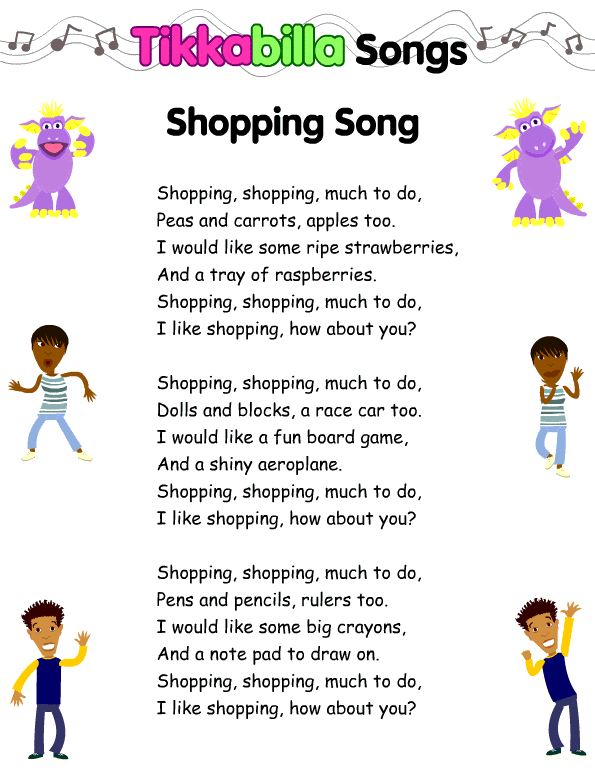
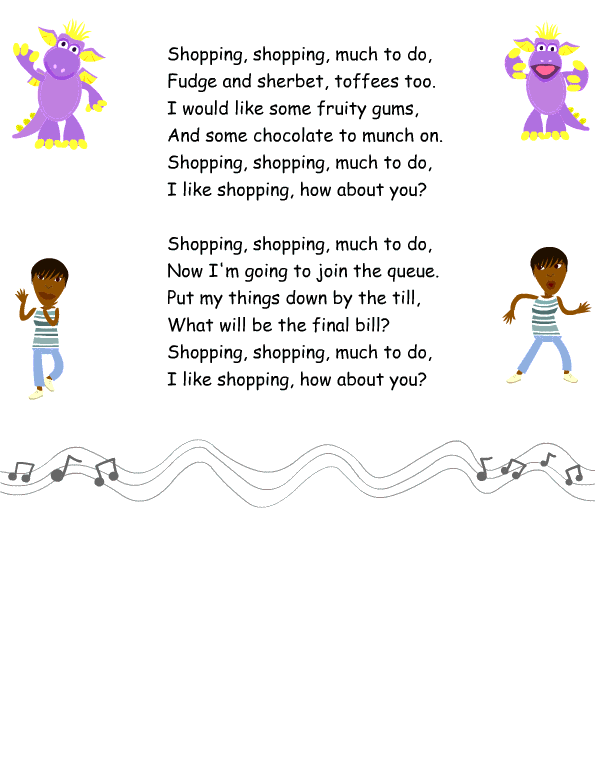
HO
Sam always helps his mum about the house. He does the washing up and sweeps the floor. On Sundays he tidies up his room. He sometimes helps his dad to fix things.
Today Sam goes shopping. He takes a bag and a shopping list and goes to the supermarket. He is going to buy a bag of flour, a pack of eggs, some meat, a bottle of oil, a carton of tomato juice, a can of fish and some apples.
But they haven’t got any meat, so he buys some sausages. He buys an ice-cream too.
When mother comes back from work she is very happy. “Oh, my little helping hand, thank you!” she says.
HO
Sam always helps his mum about the house. He does the washing up and sweeps the floor. On Sundays he tidies up his room. He sometimes helps his dad to fix things.
Today Sam goes shopping. He takes a bag and a shopping list and goes to the supermarket. He is going to buy a bag of flour, a pack of eggs, some meat, a bottle of oil, a carton of tomato juice, a can of fish and some apples.
But they haven’t got any meat, so he buys some sausages. He buys an ice-cream too.
When mother comes back from work she is very happy. “Oh, my little helping hand, thank you!” she says.
-
Thank you!


про публікацію авторської розробки
Додати розробку
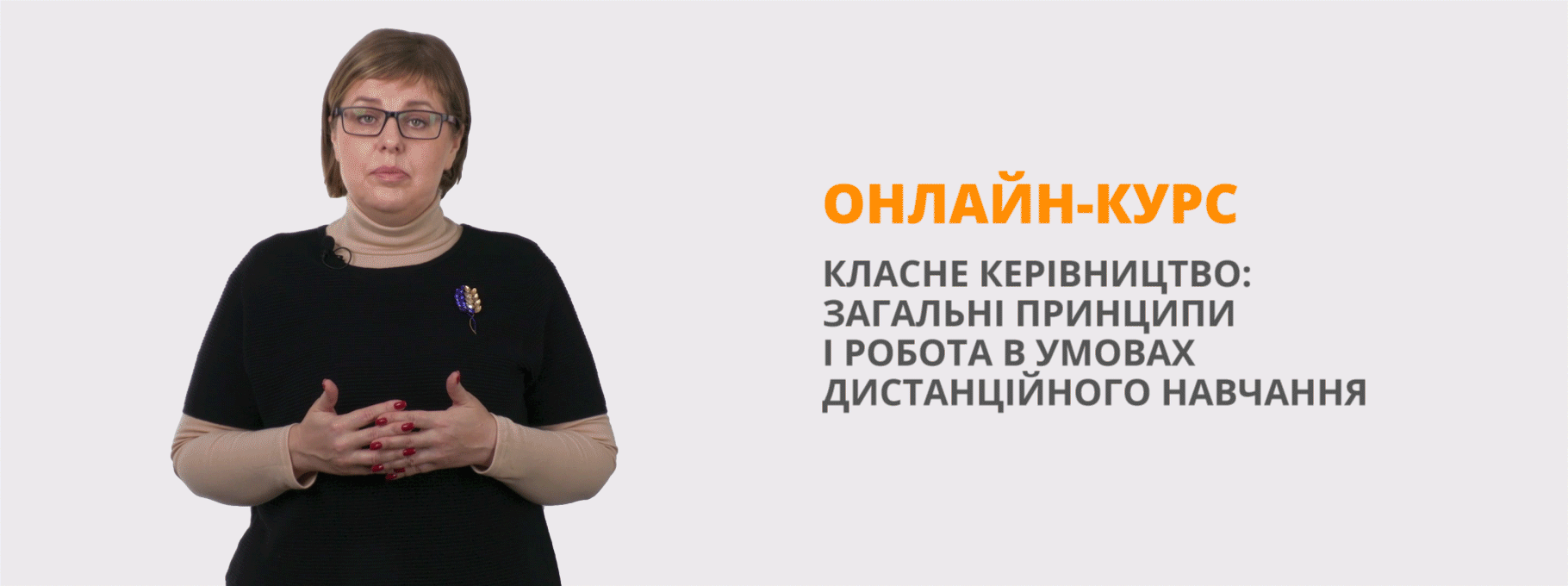












![Recycle [ri`saikl] – перерабатывать Recycle [ri`saikl] – перерабатывать](/uploads/files/138005/172373/185063_images/13.jpg)










